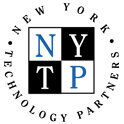How Developments in AI Have Shifted the World of Recruiting
Since the early days of the internet during the 1990s, the process of job recruitment has forever been changed by the inclusion of digital technology and all the various developments and innovations that have been brought forward over the years. The continued development of Artificial Intelligence (AI) within recent years (including tools such as Chat GPT) has caught increased attention recently, given the increased power, flexibility and accessibility of these tools within society. This article will review the growth and development of digital tools within the would of hiring and recruiting in the past, and how AI may further change within the world of employment heading into the future.
The ability for companies and organizations to share job postings online (originally on sites such as Monster, later sites such as Indeed) has radically opened the playing field for job seekers, allowing applicants from around the world to apply for jobs which would have otherwise only have been found using word-of-mouth connections or local newspapers. Combined with advances in remote teleworking technology, such as Zoom, both employers and workers have a vastly expanded set of avenues for work. The ease of online job applications, however, has frequently brought a tidal wave of job applicants, several of whom apply to a mass number of openings at various organizations using a “Spray and Pray” method — applying to a vast number of jobs even if they aren’t particularly relevant to one’s one experience and interests, hoping that a number of them contact back for an interview. This frequent practice correspondingly has resulted in hiring managers often needing to weed through dozens (if not hundreds) of applications and resumes, several of which are irrelevant or have little to do with the actual posted job description.
Due to the considerable amount of time that it would take for hiring managers to go through one-by-one reading the application materials from all the job submissions, elementary AI tools have been developed to help filter out job candidates. AI filtering tools will frequently search for key terms or phrases within an applicant’s submission materials (such as a resume, cover letter, or responses within job-related questions) that match the job description or other characteristics determined by a hiring manager. While these AI filtering tools have in some cases helped to speed up the hiring process, they have also run the risk of filtering out potentially qualified candidates due to the use of synonyms that don’t directly match the key terms provided by the hiring manager. Additionally, some opportunistic job seekers copy-and-paste entire job descriptions as unreadable white text within their resumes and/or cover letters to get through the automated filters set up by hiring managers, pretty much defeating their originally intended purpose.
With the further development of AI tools within the 2020s, including (but not limited to) Chat GPT, several noteworthy trends are beginning to take hold. AI tools can be used to aid in the writing of both job descriptions and resumes, leading to several questions about ethics and originality. Even more troubling, AIs such as Chat GPT can generate writing based on prompts so well, that outputs can be generally difficult to differentiate between content that was written by a human. While it has always been a good idea for hiring managers to do their research about prospective candidates before hiring/interviewing, this may become even more imperative in the near future as AI may make it easier for unscrupulous job applicants to generate credible sounding, yet deceptive claims about things like their prior work history. Somewhat ironically, in given the rise of AI tools in the hiring market, human expertise may become even more valuable than it was in the past, using the time-honed practice of real-time one-on-one conversation between job seekers and companies to build rapport and mutual understanding amongst each other.
Staffing and recruiting firms have had extensive experience in aiding and facilitating the human connections between companies seeking to hire qualified individuals and job-hunters, holding plenty of real-world knowledge on the current state of the job market across a range of industries and translating this hands-on know-how into meaningful connections. While AI holds enormous potential as a tool for aiding vast amounts of varying types of work, there is still a compelling case to be made for the validity and intuition of human specialists within the field of job recruitment and hiring.
If your company is seeking to add additional hires to your workforce, consider using a staffing agency to streamline the process of finding and onboarding qualified hires. New York Technology Partners is an agency that specializes in making placements for the STEM, IT, and Skilled Trades disciplines, and the firm has aided several businesses to locate hires that are right for the job and their organizational culture. If you are interested in bringing more skilled workers to speak with one of our recruiters a call at (585) 300–4720 from 9 a.m. to 5 p.m. EST, Monday through Friday.

